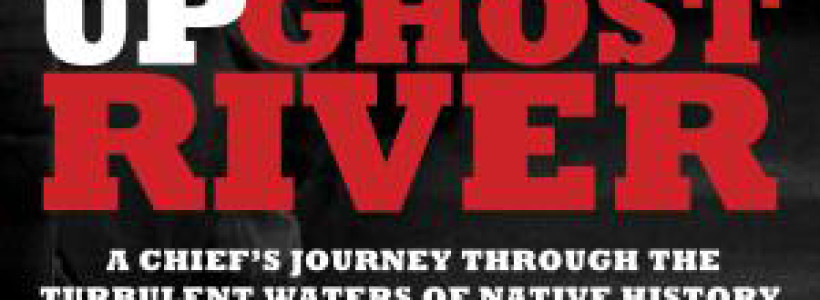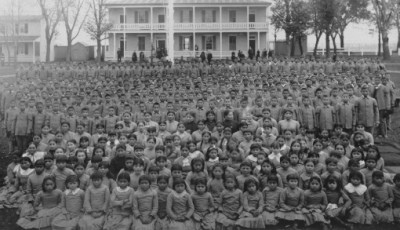BOOK REVIEW: Up Ghost River (Authors, Edmund Metatawabin and Alexandra Shimo)
Up Ghost River: A Chief’s Journey through the Turbulent Waters of Native History
Edmund Metatawabin and Alexandra Shimo
Alfred A. Knopf Canada Publishing, 2014
317 pp. $20.06 Hardcover Amazon.ca
ISBN 978 0 307 39987 8
Winner 2015 – CBC Bookie Award for Non-Fiction
Finalist 2014 – Governor General’s Literary Award for Non-Fiction
Up Ghost River is the autobiography of Edmund Metatawabin. But who is Edmund Metatawabin? He lived off the land, attended Residential School, experienced torture/abuse, married a white girl, became a parent, struggled with alcohol abuse, and in due course becomes Chief. This book is Edmund’s experience and he shares it so we can awaken to the damages inflicted by the Canadian Government via the education system.
Edmund’s story describes how he moved from childlike innocence to an environment that damaged his soul for years to come. His story starts with him as a child in the most ideal environment, with his parents, being trained in the skill of trapping. Times are getting tougher in the trapping business so Edmund’s parents feel he should attend the local Residential school to acquire new skills. This sole action starts a chain of events that find Edmund having to switch from support to survival mode.
At St. Anne’s Residential School, in Northern Ontario, Edmund starts with having his culture stripped by punishment. Two of the more horrific punishments are the electric chair for running away and eating one’s puke for not having correct manners. These punishments are part of a daily cycle of sexual and physical abuse the kids experience as they are assimilated towards Canadian society.
Edmund continues to struggle as he matures and marries, dealing with alcohol addiction, identity and self esteem issues. He does overcome his demons when he places his wife and children alongside his healing journey. He ultimately becomes chief of his band and begins a process of communal healing for the St. Anne’s region. After the epilogue Edmund gives tips on how to get involved in healing Canada from the monstrosity residential schools were.
I strongly recommend this book for Indigenous and non-Indigenous readers alike. For many non-Indigenous readers this will give you a firsthand account of what happened in residential schools and foster empathy towards the inter-generational problems this has created. For Indigenous readers, you will start to understand what may have happened to your family members and why they don’t talk about that time very often.
– Jason Bird, RezX Contributing Editor



